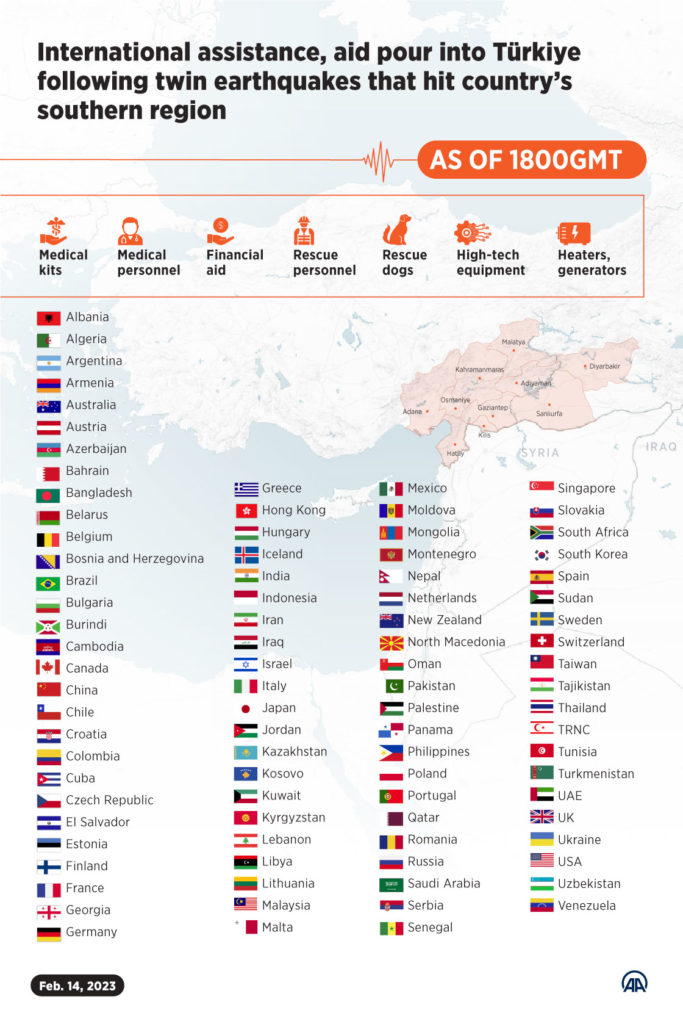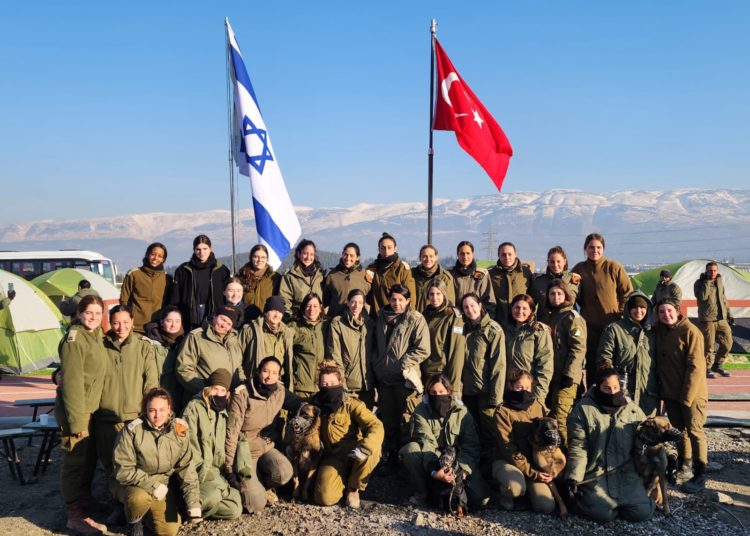Levent Kenez/Stockholm
According to the Turkish Foreign Ministry, 89 countries and 16 international organizations have provided aid to Turkey following twin earthquakes that hit the country’s southern region on February 6 including medical kits, heaters, generators and high-tech equipment that helps locate survivors under the rubble. Seventy-six countries sent badly needed search and rescue teams.
Among the countries that rushed to help Turkey after the earthquake were Greece, Armenia and Israel, all of which with Turkey has traditionally has had uneasy relations.
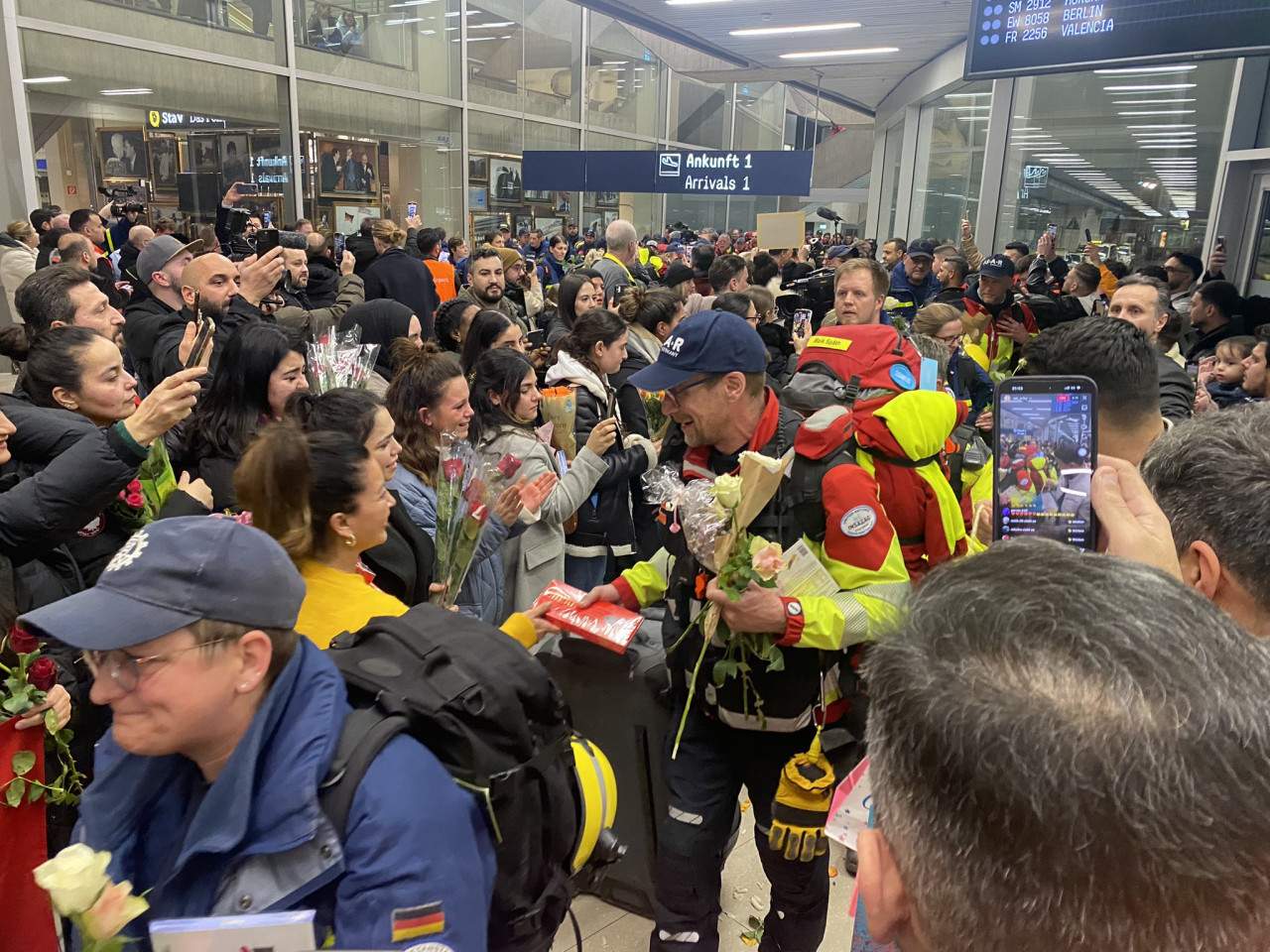
Prior to the earthquakes Turkish President Recep Tayyip Erdoğan’s government had accelerated its nationalist and Islamist rhetoric due to upcoming elections, so much so that Erdoğan said, “We can come suddenly one night” regarding neighboring Greece and implied that Turkey’s long-range missiles could easily hit Athens. According to reports in the Turkish media, it was predicted that Turkey would escalate tensions in Cyprus prior to the elections by increasing its military presence on the island.
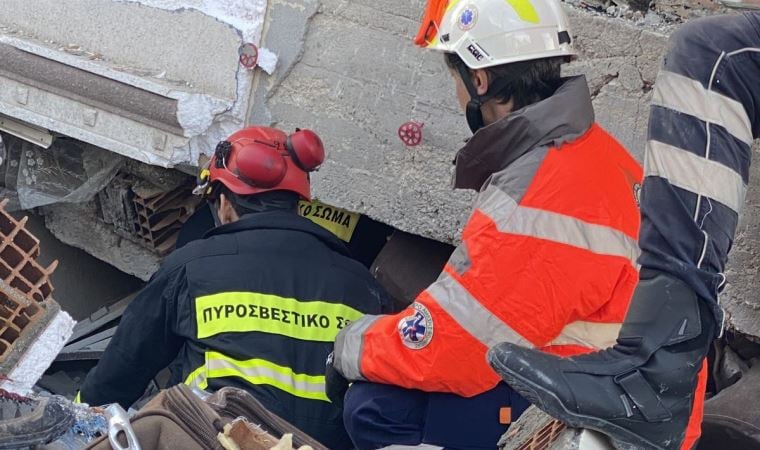
However, the disaster caused the countries to set aside diplomatic problems While the efforts of foreign rescue teams were praised in the Turkish media, thousands of social media users thanked the teams who came to help. Videos of people rescued by foreign teams went viral. Many people wrote on social media that a Turk had a friend other than a Turk, referring to the expression “A Turk has no friends but Turks,” a popular stereotype in Turkey.
A few hours after the earthquakes struck, Greek Prime Minister Kyriakos Mitsotakis announced that rescue teams including 21 commandos and doctors had been sent to Turkey.
The Greek team’s rescue of a 6-year-old girl from the rubble received extensive coverage on social media. The embrace of Turkish and Greek officials after the child’s rescue was frequently shared by Turkish and Greek social media users. “Greeks and Turks are fighting side by side, together, to save lives,” Prime Minister Mitsotakis wrote in a tweet in Turkish.
Athens immediately sent 500 tents, 1,500 beds, 7,500 blankets and various medical supplies, announcing that it would soon provide another 80 tons of aid.
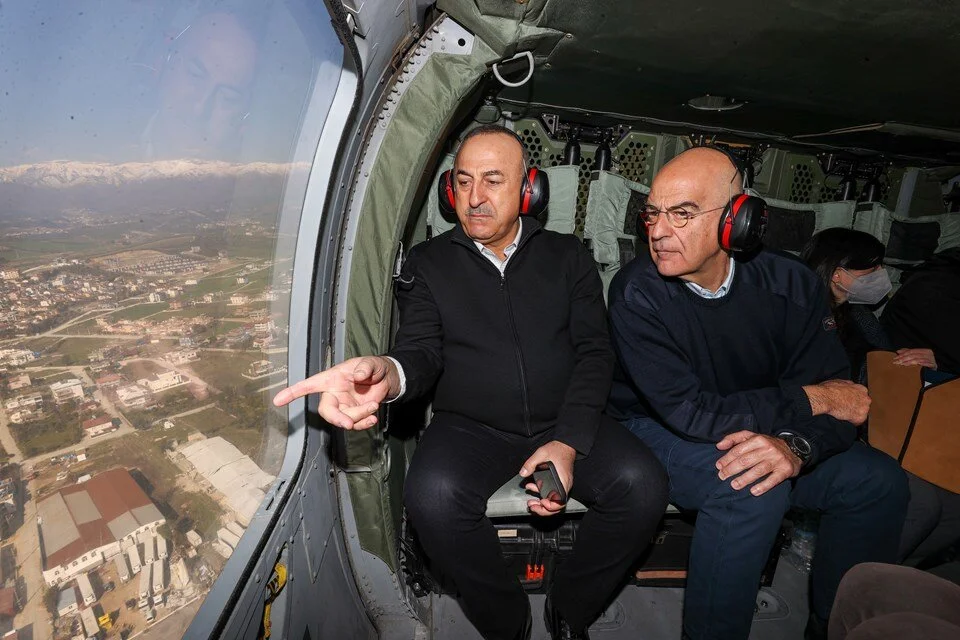
Greek Foreign Minister Nikos Dendias, who visited Adana on February 12, told reporters that Turkey and Greece should not wait for another earthquake to improve relations. “The Greek government’s support to Turkey will not end here,” he added.
Welcoming Dendias at the airport, Turkish Foreign Minister Çavuşoğlu said his counterpart’s visit to the earthquake zone showed the solidarity of Greece and the Greek people with Turkey and emphasized that Greece was one of the first countries to call Turkey and offer assistance.
The two countries are actually no strangers to rapprochement on the occasion of a disaster. After the devastating Gölcük earthquake in northwest Turkey on August 17, 1999, Greece was the first country to send a rescue team, while Turkey rushed to help following a massive earthquake that hit Athens 20 days later. During the period of rapprochement, also called “earthquake diplomacy,” the leaders of the two countries exchanged messages of friendship. However, the rapprochement failed to turn into permanent cooperation and understanding.
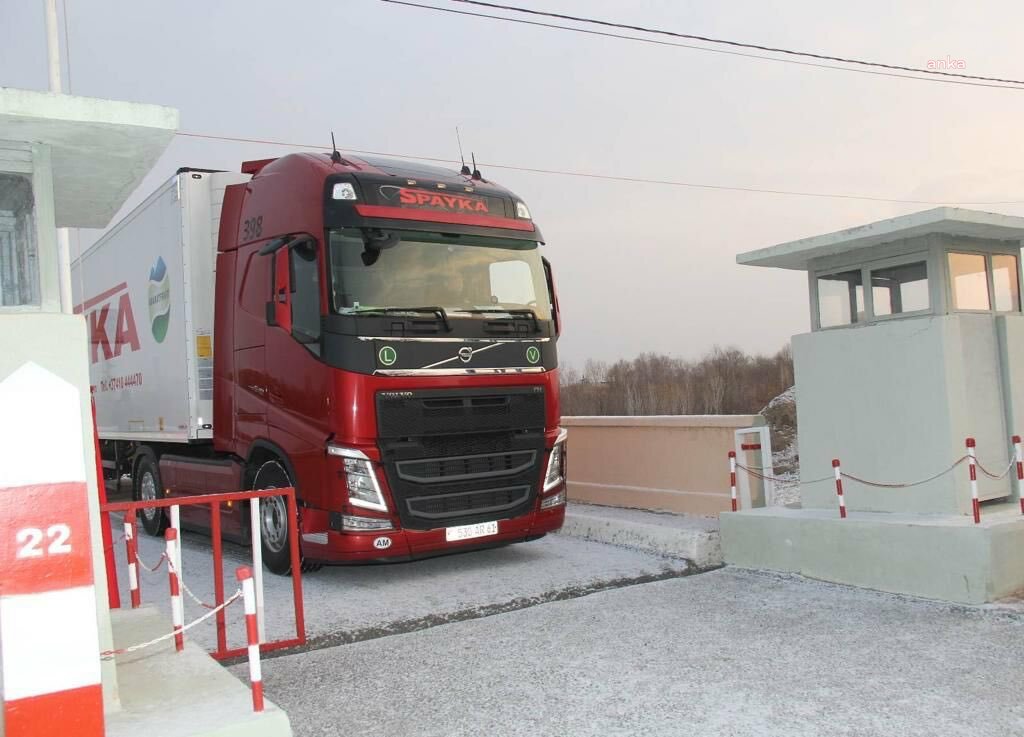
Armenia was also among the countries that sent rescue teams. An Armenian team successfully pulled a man alive from the rubble in Adıyaman. The Alican Border Gate between Armenia and Turkey, which was closed for 30 years, was opened for the first time on February 11, and five truckloads of relief supplies from Armenia entered Turkey. Erdoğan called Armenian Prime Minister Nikol Pashinyan yesterday and thanked him for the solidarity.
Israel, without a doubt, gave Turkey the greatest search and rescue support after the earthquakes, sending two aid planes with 450 search and rescue personnel to Turkey. In addition, volunteer Israeli rescue teams also arrived in the country.
On Sunday Israel reported that 60 tons of additional humanitarian aid, consisting of medicines, blankets, coats, sleeping bags and winter equipment, were on their way to Turkey.
Moreover, Israeli Foreign Minister Eli Cohen went to Ankara yesterday to show Israel’s solidarity with Turkey. “I would like to convey our sincere condolences and promises of support on behalf of the Israeli government and the Israeli people,” Cohen said following a meeting with Çavuşoğlu in Ankara. Cohen was also received by Erdoğan.
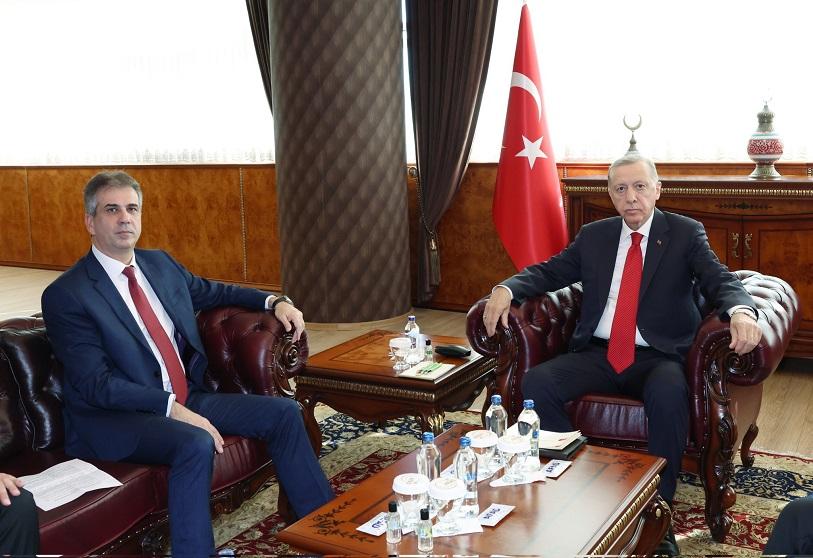
Finland and Sweden, whose NATO membership Turkey has opposed, also sent aid to Turkey. Swedish Civil Defense Minister Carl Oskar Bohlin said Sweden would send $470,000 in aid to Turkey. “Aid will be primarily tents and temporary emergency shelter materials,” he added on February 7.
Swedish Prime Minister Ulf Kristersson tweeted that Sweden, holding the Presidency of the Council of the European Union at the moment, was ready to help Turkey. The Swedish foreign minister announced on February 8 that “30 million Swedish krona [approximately 3 million euros] in additional support had been provided to Turkey.
According to a written statement from the Finnish Ministry of Interior on February 7, emergency shelters for 3,000 people were on the way to Turkey.
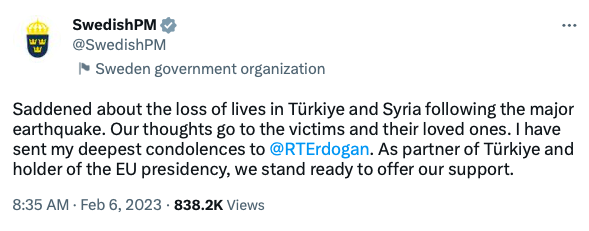
The first part of the assistance, including tents with heaters and stoves, was delivered on February 11 through NATO’s Euro-Atlantic Disaster Response Coordination Center. Finland also sent a rescue team to Turkey.
Meanwhile, Turkey is grateful to all the countries for the help they provided for search and rescue and relief efforts in the aftermath of the powerful twin earthquakes, Erdoğan said in a video message sent to the World Government Summit in Dubai, according to the state-run Anadolu news agency.
Erdoğan also said foreign teams have pulled more than 8,000 people alive from the debris since February 7.
